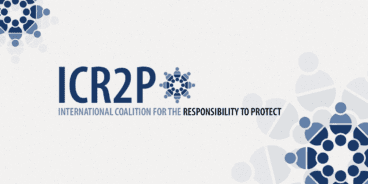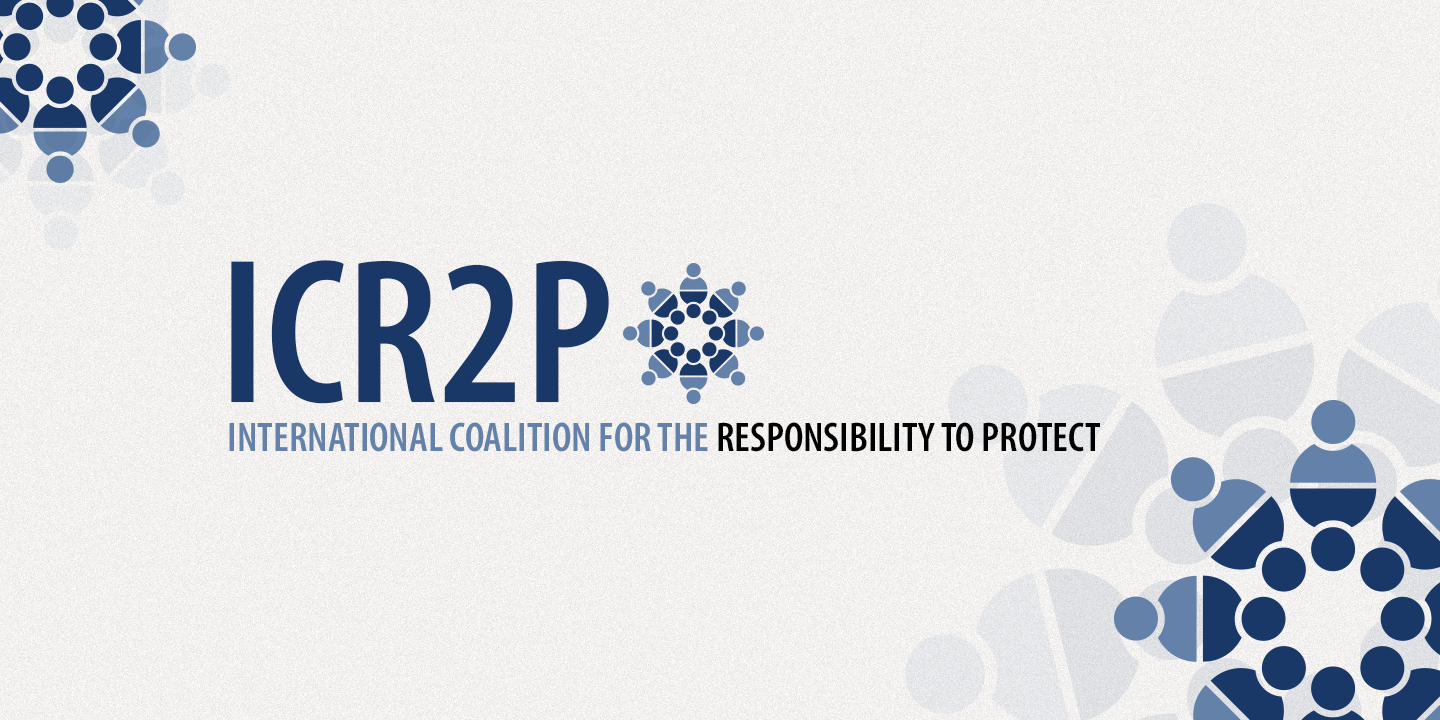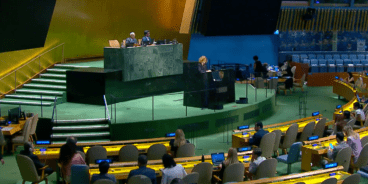

Statement by the International Coalition for the Responsibility to Protect regarding the UN General Assembly plenary meeting on R2P, 2023
The International Coalition for the Responsibility to Protect (ICR2P) welcomes the UN General Assembly’s plenary meeting today on “The responsibility to protect (R2P) and the prevention of genocide, war crimes, ethnic cleansing and crimes against humanity.” ICR2P is a community of commitment made up of 65 civil society and non-governmental organizations from around the world dedicated to the promotion of human rights, the prevention of atrocities and effective and consistent implementation of R2P.
ICR2P welcomes this year’s focus on “Development and the Responsibility to Protect” in the UN Secretary-General’s annual report on R2P. Recurrent violence, conflict and atrocity crimes across the world are often rooted in long-standing institutionalized discrimination, economic inequalities and inequities, unequal access to education, social exclusion, and violations and abuses of human rights, including of economic, social and cultural rights, and can be exacerbated by the impacts of climate change, loss of biodiversity and other environmental pressures. Not only are these factors a source of conflict in themselves, but they can also severely hinder a society’s capacity to prevent atrocity crimes. The 2030 Agenda for Sustainable Development recognizes that sustainable development depends on fostering peaceful, just and inclusive societies that are free from fear and all forms of violence. In turn, the promotion of economic growth, reduction of poverty and improvement of social conditions are critical foundations for resilient societies that can mitigate the risk of mass atrocities and protect vulnerable populations. In this regard, achieving the 2030 Agenda can be considered a cornerstone of atrocity prevention.
As noted in the Secretary-General’s report, the intricate connections between development, atrocity crimes and R2P demonstrate the critical importance of holistic prevention efforts. Mass atrocity crimes are not random or isolated incidents. In order to protect populations from atrocities, the international community needs to understand the underlying drivers that perpetuate human suffering and invest in meaningful, effective and holistic prevention. This should be based on comprehensive early warning involving accurate identification of all risk factors, including those associated with development indicators. In fact, some of the most effective policies for the prevention of atrocities are those aimed at reducing socioeconomic inequalities, poor governance, weak institutions and mismanagement and abuse of natural resources. Individual member states, regional bodies and the UN system must more effectively seize such policies to better protect vulnerable populations and avoid costlier late-stage measures in the aftermath of atrocities.
The international community is already equipped with a wide range of tools to ensure the holistic prevention of atrocities. What is needed now is a comprehensive and unified approach for effective implementation. It is imperative that UN member states strive to break silos within the system, including by implementing the three pillars of the UN – development, human rights and peace and security – in a manner that compliments and enhances the effectiveness of policies within each pillar. Member states should work towards strengthening cross-departmental atrocity prevention in the UN system, including through linking cross-cutting agendas like the Call to Action for Human Rights and Our Common Agenda. This also includes strengthening how development cooperation, technical assistance and capacity building measures are utilized to address root causes and mitigate other factors that increase the risk of atrocity crimes. The Peacebuilding Commission in particular can play an important role in supporting states in the transition from conflict and atrocity crimes to sustainable peace by addressing underlying development indicators. Member states should explore possibilities for greater engagement of the Peacebuilding Commission in helping states and advising the UN Security Council to fulfil their obligations relating to the Responsibility to Protect.
Effective atrocity prevention efforts are equally predicated on the involvement of civil society. Civil society and affected populations, including survivor communities, are equipped with an in-depth understanding and expertise that UN member states should incorporate and centralize in development and all atrocity prevention efforts. Civil society actors and affected communities are often the first to witness and document the indicators and early warning signs of atrocities – they are also the most severely impacted by the economic and social devastation inflicted by atrocity crimes. As a result, civil society actors and affected communities should be at the forefront of efforts to foster post-conflict peace and development. They are best placed to understand the strategies required for long-term sustainable growth, including the most appropriate development measures that can facilitate structural prevention. Governments, as well as international and regional organizations, must deepen their cooperation with civil society and affected populations at every stage of the decision-making process, particularly in crafting development priorities as well as technical assistance and capacity building efforts. In so doing, the international community can take more appropriate and effective preventive action that is rights-based and community-informed.
ICR2P commends the states that have begun to develop cohesive government-wide strategies and approaches to atrocity prevention that are gender-inclusive. ICR2P further urges all states to consider building similar national and regional architectures for atrocity prevention to institutionalize early warning and action as core priorities. States should also ensure that development assistance programs benefit all communities equally, reduce tensions and empower local populations, including women, indigenous peoples, persons belonging to minority groups and other marginalized groups. Member States should increase funding for relevant programs to promote social cohesion, prevent identity-based violence and decrease intergroup tensions in both their domestic and external affairs, without, however, diverting funds from other areas of support and assistance to populations in need.
ICR2P calls on all UN member states to use the occasion of this year’s General Assembly plenary meeting on R2P as an opportunity to not only renew individual and collective commitments to the prevention of atrocities and the Responsibility to Protect, but to also turn those commitments into timely and effective action. When R2P was established at the World Summit in 2005, states agreed that political expediency would not excuse inaction when confronted with the most heinous of crimes. Yet today we are confronted with unprecedented levels of violence, atrocities and displacement. ICR2P stands ready as a partner for individual states, regional bodies and the international community to ensure that our enduring responsibility to protect is upheld consistently, robustly and without exception. Doing so will help us avoid the horrors of the past and break the cycle of mass atrocities.
